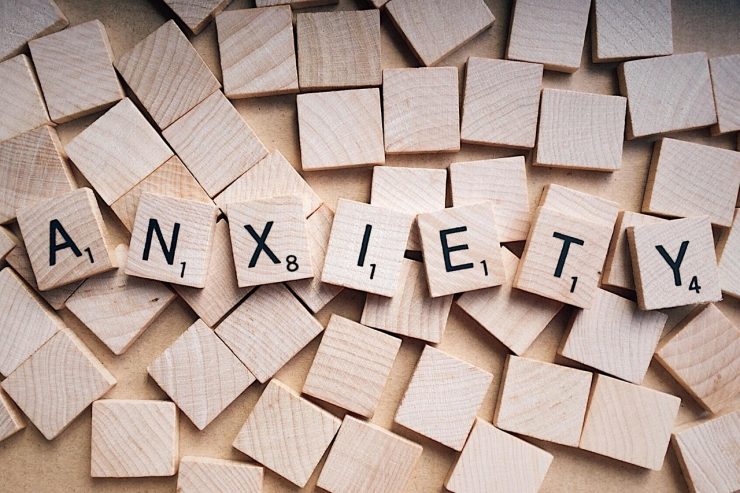We seem to be a nation full of anxiety. Sure, recent events haven’t helped, but a lot of our anxiety is just general and constant. It can make you feel on edge, irritable, and stressed, making everyday decisions and work tougher than they need to be. While many people turn to prescription medications for relief—which can be hard to stop and come with their own side effects—you can actually tackle anxiety at its root and improve your overall health. And believe it or not, a big part of that starts in your gut.
Here’s the thing: about 90% of the serotonin in your body, which is the “feel-good” chemical that helps you feel calm and happy, is actually produced in your gut. That’s right—a brain chemical made in your gut! Our gut and our brain share a common origin from the same tissue during fetal development, which is why the gut is sometimes called our “second brain.” These two systems communicate directly through the vagus nerve, which sends signals mainly from your gut to your brain. This communication can greatly influence your mood, anxiety, and even depression.
Certain gut bacteria play a huge role in keeping that serotonin flowing. If your gut’s balance is off, it can lead to low serotonin levels, which might show up as anxiety, depression, low energy, irritability, cravings for carbs and sweets, and even a reduced interest in sex.
So, how do you support the serotonin factory in your gut? It all starts with what you eat. Many of us have diets that cause inflammation in the gut—think processed foods, too much conventional dairy, processed vegetable oils, and excessive sugar. Even food sensitivities like gluten or corn, or chemicals like glyphosate (a common herbicide sprayed on non-organic grains and legumes) can disrupt your gut bacteria. Glyphosate, for example, has been shown to kill beneficial bacteria and even increase anxiety and depression in animal studies.
If you’ve ever had issues with IBS, gluten sensitivity, or other food allergies—and if you’ve experienced anxiety or depression—it might be time to try an elimination diet. Start by cutting out gluten, corn, and dairy. That simple change can make a huge difference.
Next, ditch all processed foods, especially those loaded with added sugars like high fructose corn syrup. Processed foods tend to feed harmful bacteria and even candida, which can further upset your gut balance.
It’s also important to avoid vegetable seed oils—like canola, sunflower, cottonseed, corn, and soybean oil. These oils are linked to inflammation, and studies suggest they may even contribute to conditions like cancer, Alzheimer’s, and chronic anxiety or depression.
Many people find that by cleaning up their diet and eliminating these inflammatory foods, they experience significant relief from anxiety and depression. Eating a diet rich in fresh, organic vegetables, a bit of fruit, naturally raised meat, and healthy fats can feed the good bacteria in your gut. Foods like apples, artichokes, blueberries, almonds, and pistachios have been shown to boost the levels of beneficial Bifidobacteria, which help prevent intestinal inflammation and anxiety.
Adding a broad-spectrum probiotic supplement, especially one that includes Bifidobacterium longum and Lactobacillus rhamnosus, can further support a healthy gut.
Other things that can contribute to anxiety include alcohol, too much sugar, lack of sleep, insufficient exercise, estrogen dominance (common in perimenopausal and menopausal women), excessive caffeine, and certain medications. On top of that, a good multi-B vitamin supplement with methylfolate and methylcobalamin has been shown to help manage anxiety and depression. Don’t forget to consider supplements like magnesium, zinc, omega-3s, and choline, which is often low in menopausal and post-menopausal women.
Taking care of your gut is a key step in managing anxiety. It’s not just about what’s happening in your head—it starts in your digestive system. How do you feel about making some gut-friendly changes?











